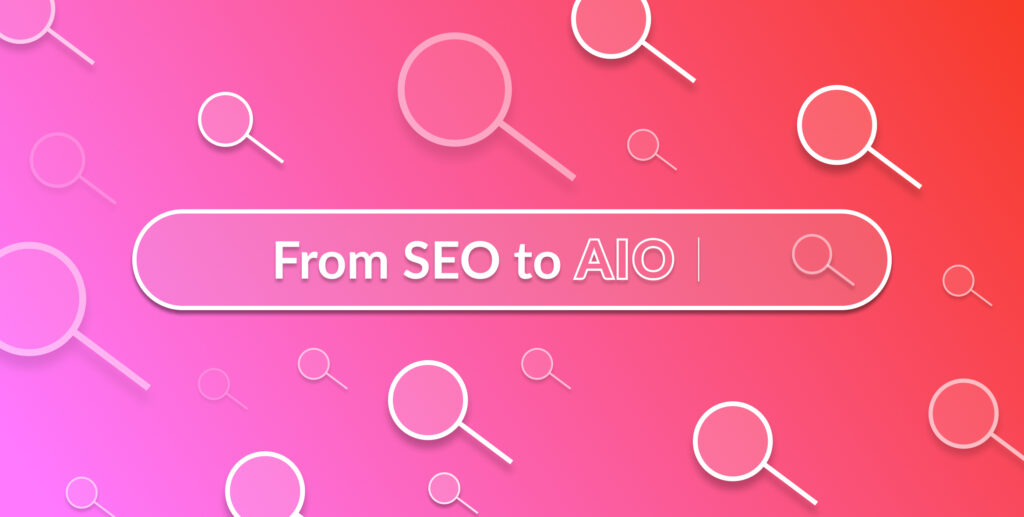SEO was once shorthand for Google, but search has changed. While Google isn’t going anywhere soon, it’s not the only player in search: Gen AI and evolving social media habits have fundamentally changed how we search and where we find answers.
AI-powered platforms like Perplexity are emerging as reliable sources for citation-backed answers, addressing concerns around ChatGPT’s “hallucinations” with verified information. At the same time, Gen Z, disenchanted with Google’s ad-heavy interface, increasingly turns to platforms like TikTok for immediate, visual answers.
So, what do these shifts mean for B2B content marketers?
It’s still early days, but here are our key predictions and recommendations on how tech brands can adapt their content optimization strategies.
What are the key alternatives to Google search?
Here are just a few of the alternative places people turn to instead of Google to find answers to their questions:
- Perplexity: This AI-powered search engine provides concise, citation-backed answers. It’s a dependable alternative for quick reference information.
- ChatGPT: OpenAI’s platform just got smarter by now searching the internet, making it a strong alternative to Perplexity. However, it still struggles with accuracy, sometimes presenting “hallucinated” information.
- Reddit: This social platform keeps dominating Google’s search rankings. Don’t underestimate the power of community-driven answers.
- TikTok: Gen Z’s favourite search engine, providing immediate and visual answers to questions on almost every topic.
- YouTube: From tutorials to demos to webinars, YouTube has it all.
- Apple Intelligence: For users in the Apple ecosystem, there are huge benefits to using Apple Intelligence, even if its features still lag behind Google Gemini.
While not all these platforms will be relevant to your business, we encourage you to investigate their potential. For example, Reddit’s highly engaged and hyper-focused communities (subreddits), can be a great way to generate huge brand awareness with key target demographics, provided your output feels authentic and genuinely useful.
How is Google Search affected by AI?
When ChatGPT launched, search results got flooded with low-quality AI content. Google and other search engines have had a tough time making sure authentically useful content rises to the top. Google’s August 2024 core update was created with the aim of “showing more content that people find genuinely useful”. Google specifically states that it will rank higher content created for people, not search engines, and penalise content that looks primarily created to match very specific search queries. November’s core update, which is currently rolling out, makes the same promise.
This sounds good in principle for tech brands delivering high quality content for their customers.
However, at the same time, Google is also supplementing its search engine with AI-organised answers. We’re already seeing a shift towards:
- AI-generated summaries: Larger informational overviews created by AI, with prompts to go deeper if users choose.
- Interactive search boxes: The classic search box could evolve into a conversational prompt, encouraging users to refine or expand their queries.
- Rise of zero-click results: A format where AI delivers full, direct answers in the search results, reducing the need to click through to source sites.
The backlash to Google’s approach to AI search has been negative so far, with people complaining of a poor user experience, inaccurate answers, and a cluttered interface. If Google wants to make good on its promise of delivering high quality results made for people, then further changes will be necessary.
But the hope is that, in time, these AI-fuelled answers will pull from trusted sources rather than spammy content. As always, these changes take time, and brands must carefully monitor their results to track what impact AI and core updates are having on their results.
How can you adapt to the impact of AI-driven search results?
With so much change in the air, you might be wondering where to focus your attention, so here is a quick list of our recommendations:
- Keep SEO best practice: Studies indicate that ranking high on Google still increases your chances of appearing in a ChatGPT/AI answer, so if you are already performing best practice SEO, keep on that path. This will also have benefits for you as visual search and voice search further develop.
- Develop unique takes: Originality has never been more important: focus on creating unique point of views and highly useful longform content for your prospects
- Nurture thought leaders: Thought leaders will grow in importance. According to SEO expert Lila Ray, Google is working on a way to link different pieces of content by the same author across websites and platforms
- Build a presence on trusted sources: Early signs suggest that it’s important to make sure your content and your brand appear in as many external sites as possible—round-up articles, reviews, or industry publications. The goal? Become a name that search engines and AI recommend, even if users aren’t visiting your site directly. This means PR and guest speaking opportunities should all be part of your marketing mix.
- Explore alternative search platform: Even platforms like TikTok, very consumer-y today, can start to yield channels, form factors, and opportunities for B2B success, so keep an open mind and stay in touch with evolving search habits.
Are you ready to navigate the future of search?
The evolution of search is perhaps the single factor with the most impact on content marketing strategies. And the writing is on the wall: people will diversify the way they search for information.
It is also worth noting that as Gen Z consumers grow into decision-making positions at B2B organisations, they will bring their search preferences with them. For example, that Reddit-addicted engineering design graduate is going to continue to reach out to his community for answer to connectivity, coding, and automation challenges they face at work.
This means they will favour alternative platforms like AI-powered tools, social media, and visual search engines. To stay relevant to these influencers and decisionmakers, a diversified SEO strategy is essential. Today’s B2B content marketers must think beyond Google, assure brand presence across varied platforms and optimise content for user-centric, intuitive searches.
Brands that invest in authenticity, thought leadership, and high-quality, multi-platform content will emerge as leaders. The future of search may be unpredictable, but with a proactive, adaptable approach, your content will be primed to succeed wherever your customers are looking.
Need help to AI-proof your content? Get in touch hello@isolinecomms.com
FAQs
AIO means Artificial Intelligence optimisation, it refers to the use of artificial intelligence technologies to improve search engine optimization efforts. AIO leverages AI-powered tools and algorithms to automate and enhance various SEO tasks, from keyword research to content optimization.
Answer Engine Optimization (AEO) is an emerging digital marketing strategy that focuses on optimising web content to appear in AI-generated responses to user queries. It’s closely related to SEO but has some distinct characteristics and goals. It targets AI-powered platforms like ChatGPT, Google’s Search Generative Experience (SGE), Alexa, and Siri. AEO aims to provide concise, accurate answers to specific questions that users might ask search engines, voice assistants, or AI chatbots. AEO often targets featured snippets, answer boxes, and voice search results where users get immediate answers without clicking through to a website.
Generative Engine Optimization (GEO) is an emerging SEO strategy focused on optimising content for AI-driven search engines and generative AI tools. It involves structuring content to be easily interpreted and synthesised by AI systems.
Zero-click results, where AI presents a complete answer within the search engine results page (SERP), could significantly impact how traffic flows to websites. Independent publishers may find it harder to capture clicks, especially for informational content.
The upside? While zero-click results could reduce traffic, they also offer new opportunities for brand visibility and authority. Even if users aren’t clicking through, your content might still be the information source featured in a zero-click answer.
Omnichannel SEO diversifies brand presence across multiple platforms, ensuring a broader reach through optimised, channel-specific content.
No, AI is not taking over SEO entirely. While AI is changing how SEO is done by automating many tasks, human expertise is still crucial for strategy, creativity, and interpreting AI insights.
No, AI cannot fully replace human SEO professionals. While AI excels at data analysis and automation, human expertise is still essential for strategic decision-making, creative content development, and understanding nuanced context that AI may miss.
Voice search affects SEO by prioritising conversational language and question-answer formats, as users often search by asking complete questions. Optimising for voice search means using natural, question-based phrases, focusing on concise answers, and targeting featured snippets or FAQs.
Design has never been more crucial, so ensure you use high-resolution images, optimise the metadata (alt text, captions and proper file names), compress images, and add schema.org markups. Most importantly, give proper context to any images you share, with the copy as high quality as the design.
Like what you just read?
There’s more where that came from. Sign up to our newsletter to get the latest B2B tech news, content marketing insights, tips, tricks, memes, and more, delivered straight into your inbox every month.



